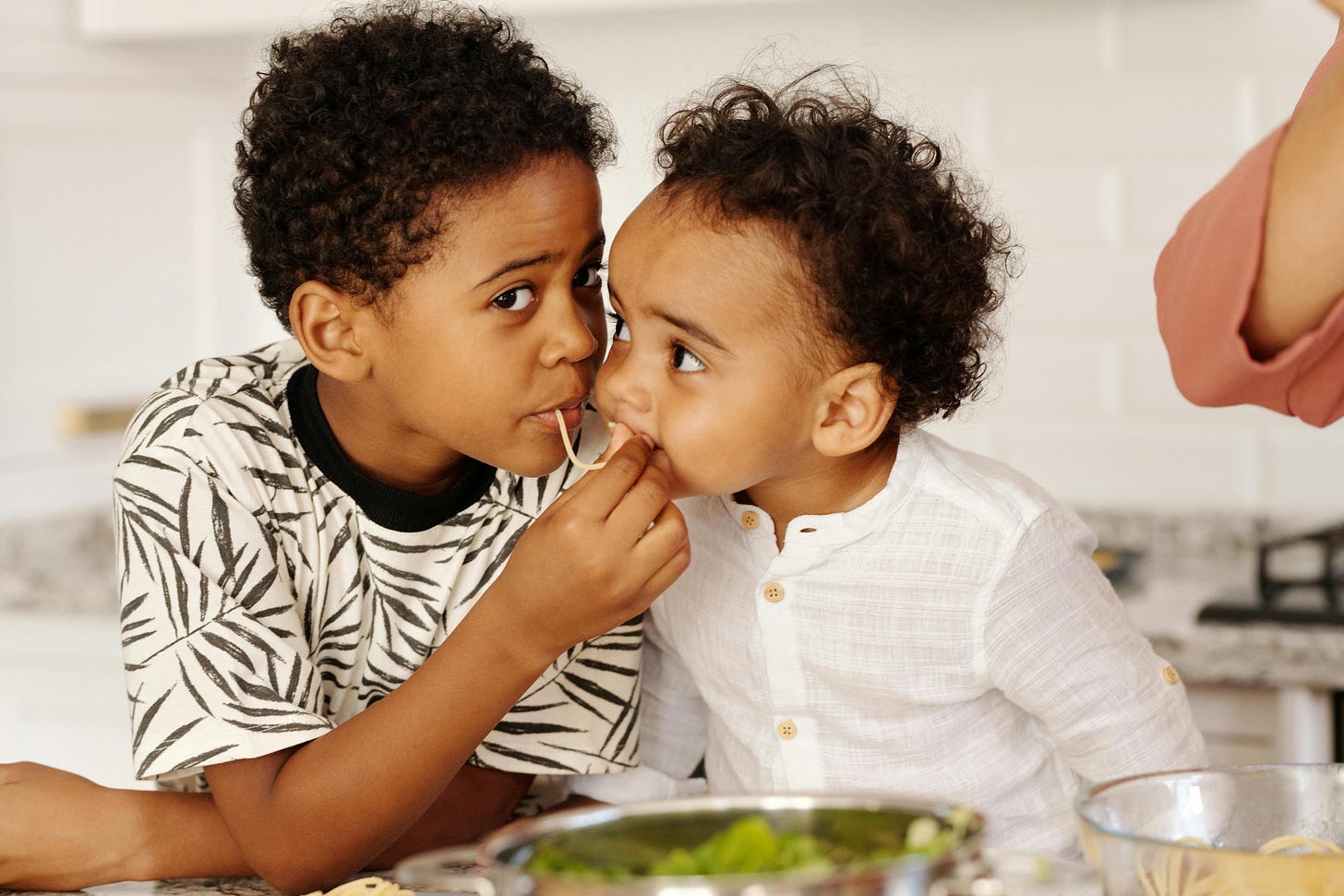63% of UK parents say that their child has a big say in household meals
No, you can’t have ketchup on that
Every fortnight I round up the most interesting and insightful writing about British Gen Alphas (born 2010-2024) from across the internet so you can stay bang up to speed on this emerging and fascinating cohort.
This time we’re talking: hungry tummies, record-low reading rates and phone bans (maybe). Let’s tuck in.

Meet Gen Alpha: The Next Generation of Food Consumers
By Mintel
So what do kids today want to eat? YouTuber-created meal kits! Please God no, no, that’s not it. Apparently, they want: “functional foods, sustainable sourcing, and ethical consumption.” This report finds that 39% of parents say that their child wants to eat fewer animal-derived products (like meat and milk) due to their sustainability concerns and predicts a future openness amongst Alphas towards “sustainable food technologies such as genetically modified ingredients and lab-grown foods.” As well as being eco-conscious, Alphas are health and wellness-focused and we see that play out in on-pack ingredient claims where sugar is out and vitamins are in: in 2024, 9% of global children’s food launches carried a “no added sugar” claim (up 5pp since 2019) and 28% featured a vitamin or mineral fortification claim. Here in the UK, where seven in ten parents give their kids vitamins and supplements, Mintel notes a “blurring [of] lines between snacking and supplement categories.” Sugar-free, vitamin-enfused, plant-based lollipop, anyone?
Children 'pretending to eat from empty lunchboxes'
By Amy Holmes for BBC
Lest I give you the impression that it’s all “adventurous appetites” and “immersive food experiences” out there, please allow me to serve up the stark reality that some British kids are struggling to get the sustenance they need, at all. This headline is like a real-life horror version of this campaign (which has really stuck with me) and as the Cost of Living Crisis rages on and more and more families rely on Food Banks, it’s sadly safe to say this is not an isolated incident.
Children and Young People's Reading in 2024
The 2024 Annual Literacy Survey has found that the number of 8-18yo who say they enjoy reading in their free time - just 1 in 3 - is the lowest since the survey began in 2005. Today only 1 in 5 kids say they read something daily in their free time (another record low - as daily reading levels fell by 7.5pp in the last year alone.) Since reading is inextricably linked to educational achievement, the National Literary Trust wants “to make reading for pleasure a national priority.”
Social media ban for UK under-16s ‘not on the cards’ for now, says minister
By Robert Booth for The Guardian
Buoyed into action by the recent goings-on Down Under there has been much campaigning, hand-wringing and writing in the British Press about a potential ban on U16s using social media and, concurrently, a ban on phones themselves in schools - something that will be debated in the House of Lords tomorrow. A “solution” or even any concrete action on either topic feels a long way off but it does feel like public interest in Alphas’ phone and social media usage is building. Could an enforced nationwide switch to Sega’s new emoji pager kill two birds with one stone? Probably not. But they sure look fun.
Young People and Gambling 2024: Official statistics
Perhaps the only thing more surprising than the fact that there is an organisation annually tracking Alpha gambling habits is the findings themselves: Today 85,000 children are classified as having a gambling problem and nearly one in 10 reported that gambling by family members had caused problems at home. 27% of 11-17yo (so some Gen Zers in there too) have spent their own money on gambling in the past year but if you remove arcade games, which are legally accessible to young people, that drops to 6%. The report also finds a sharp - and presumably interconnected - rise in both exposure to gambling adverts and kids placing online bets (via an adult's account.) A spokesperson for the Coalition to End Gambling Ads (CEGA), told The Guardian that this was “no surprise considering the ongoing barrage of gambling ads that every child in the UK is forced to see almost every day of their lives”. While 80% of young people gamble for fun, only 26% said that it makes them feel happy.



